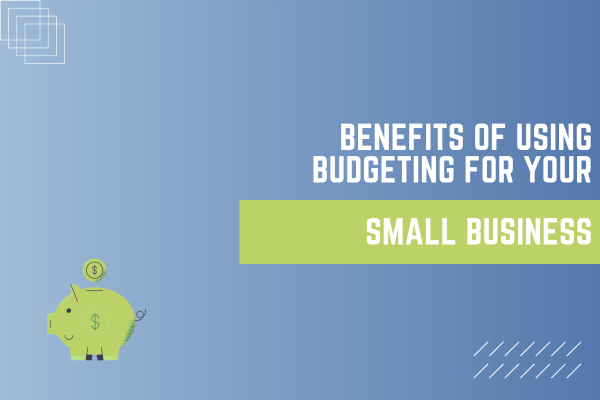Budgeting is an indispensable tool that provides a broad overview of your business finances. It comprises key data including income and expenditure, but it’s not a static document and should be reviewed regularly for accuracy.
It’s a good idea to create an annual budget and then break that down into quarterly or monthly budgets to give you an up-to-date view of your business financials. You’ll get to know and understand your figures and be able to make decisions with more confidence.
Budgeting offers many benefits for your small business, though, so let’s take a look at these in more detail.
Effective money management
Budgeting helps you proactively manage your money as a small business and can be used to create reliable forecasts of your cash needs over the coming months. If you have a surplus of cash you might decide to put some aside for emergency use, for instance. Conversely, it also highlights any upcoming cash shortages or the need for additional funding.
A crucial aspect of reliable budgeting is that it helps you allocate the resources you need for new projects – placing money where it’s most needed whilst continuing to fund the business on a day-to-day basis.
Attract investment
If you’re looking for external investment you can use your budget to demonstrate financial responsibility and awareness. It shows you have control over the financial aspect of your business, which should instil confidence in potential investors and lenders.
A history of accurate budgeting is a significant advantage for businesses needing investment. Although the figures will still be scrutinised, a strong focus on accuracy and attention to detail when you’re developing your budgets can make your business far more attractive to investors.
Set goals
The financial clarity provided by a budget helps you set important business goals. It can indicate the best time to expand your product offering, for example, take on more staff, or change your marketing strategy to see improved results.
Importantly, budgeting also encourages sustainable growth as you are basing your goals and decisions on detailed information. This means you are less likely to over-reach financially and jeopardise your progress to date.
Monitor performance
A small business budget is a dynamic document that should be adjusted and updated as time goes on. It helps you monitor your business’s performance by taking a high-level annual view, as well as regular monthly or weekly checks on how you are doing.
As a result of this, you benefit from greater choice and agility. For example, you may have started to save more each month and subsequently had the flexibility to pay an unexpected bill from your emergency fund.
Meet your business objectives with budgeting
Budgeting can help you meet your business objectives, whether that’s reaching a certain profitability level, expanding into a new market, or offering notably high levels of customer service.
It provides the core information that allows you to move confidently towards your goals with the security of a solid financial footing and gives you the understanding to deal with any roadblocks on the way.
Budgeting for managing your business
With so many benefits available from budgeting, it’s an important part of your business toolbox. The financial clarity it provides is invaluable and prevents potentially rash decisions from being made based on guesswork.
It can help you deal with events outside of your control, such as changes in the market. Ultimately, however, budgeting goes beyond the financial management aspect and becomes an integral part of good business management as a whole.
About the author – Shaun Barton is a partner at Real Business Rescue, company rescue, restructuring and liquidation specialists with a wealth of experience in supporting company directors in financial difficulty.



